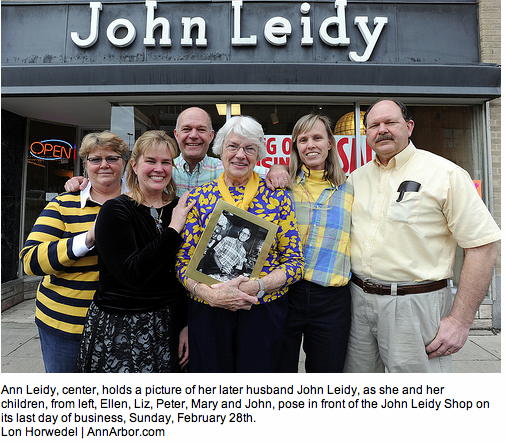You can't open a newspaper, turn on the TV, or go online without seeing a story of a venerable business calling it quits, whether it's the hardware store outside of Denver, Colorado, the bookstore in upstate New York, or the gift store in Ann Arbor, Michigan.
Newspapers love to do these types of stories about family businesses that pride themselves on longevity and have chosen to close their doors.
That is foolish.
Frequently cited reasons are (in no particular order,) the economy, shoppers trading down, trading areas not being as vibrant as they once were, big boxes, and online shoppers.
Are you looking at the landscape for the luxury consumer, and it doesn't look like it did even five years ago? Have you dumbed down your offerings to meet a price point at the expense of more profitable items? Are customers just not coming in anymore? There's hope, but you have to work at it.
If your store has been around for generations, you have an abundance of goodwill in your community. That can be leveraged.
For example, if you are a jewelry store, all those rings, watches, and graduation gifts count for a lot, yet most jewelry stores are a time machine backward. Here’s what I mean.
When I go to jewelry stores today, they look the way I did when I first visited them in the 1960s. Jewelry stores aren't known for carrying a big retail footprint, so why do jewelers want to segment every customer to one or two display cases?
For example, why am I still asked about the “Pinpoint” approach? You know, “Can help you find something?" Then taken to the one display case of offerings? I may only see 10% of their offerings because their sales clerk has decided it was most efficient for me to look at what I came in for rather than exploring the whole store. That’s a huge lost opportunity. You don’t know who I may need to buy something for someday.
The best retailers display multiple items together so customers are intrigued to stop, consider and browse. That means changing how you display things so more of your store is shown in more places. You’ll have to hear employees say, “They keep moving things on me.” I say to them, “Deal with it if you want a job.”
The other approach I call the “Museum.” That’s where the employee says, “Look around and let me know if you’d like to see anything.” That expects customers to do all the work. Guess what? They won't and will leave.
With Facebook and all the other social media sites, it is clear customers are responding to friends and trusting their advice. If you’re still expecting customers to come to the mount and have you efficiently explain a setting, you’re missing it. That means changing the way you approach selling your fine jewelry.
Both approaches are conducted behind large glass counters where the employee is literally the keeper of the keys. I call it storming the castle. Major banks, hotels, and retailers have cut their counters in half, now more like desks than anything. The days of rows of cases that isolate are over. That means changing the way you set up your store.
Along with that is the approach many boutique retailers use to sell from the side rather than in front of the customer. It would mean unlocking a case and coming around the counter to build trust with the customer. Not hard in theory to do, but try it; your employees will fight the change.
To compete, you must ask hard questions and find the answers. Generations of Americans have owned their own jewelry, hardware, bookstores, and gift stores, and generations to come will also. But it won't get easier - you can't blame someone else for failure. You have to question. You have to think. And yes, you have to be willing to risk trying new things.
As your competitors shutter their doors and online sites proliferate, you don't have to go out of business.
It does if you're not willing to change. And maybe that's what this article is really all about - the willingness to change, to risk, to realize we're not going back to the go-go 80s, the flamboyant 90s, or the home-equity-fueled 2000s. Know that whatever future we have in retail will be determined by people like you who look at how they've always done business and say, "How about if we...?" They don't take the easy way out, leave their community hanging, or find the media to announce, "We're outta here," but rather, "We're here to stay."

